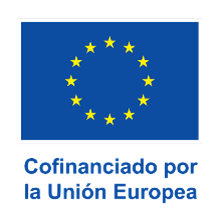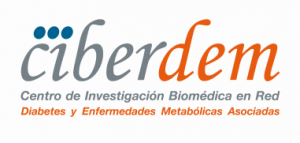Research Projects
Over the past years, the group has received more than 3 million euros from competitive funding for research projects related to technologies for diabetes. The main projects are:
Ongoing Projects
Bidirectional Brain-Body Interactions and Refinement of Multidimensional Electrical Neuromodulation for Enhanced Living- IRENE (2024 – 2027). Reference: PID2023-149837OB-I00. Funded by MICIU, AEI & FEDER, total: 138.250 € P.I. Ivan Contreras. Other participants: IDIBGI, FUNDACIÓ DE RECERCA CLÍNIC BARCELONA & UNIVERSITY OF CAMBRIDGE.
The IRENE project positions itself as an innovative initiative focused on the research and application of non-invasive vagus nerve stimulation (nVNS). Continuing the research path initiated by the VaNeSA project (PID2020-117171RA-I00), the IRENE project explores new solutions involving personalized nVNS to enhance the treatment and self-management of different disorders by stimulating the autonomic nervous system (ANS). To expand on the research conducted in the VaNeSA project, our first step involves the validation of a decision support system (DSS) that integrates computational models specifically tailored for systemic lupus erythematosus (SLE) patients.
This extension aims to improve the scope and applicability of our investigations.
Secondly, in response to the growing need for more refined and personalized approaches to combat obesity, IRENE proposes to characterize nVNS parameters, validate computational models, and explore personalized therapies based on these findings. Additionally, we will integrate data from VaNeSA and other studies to investigate the role of heart rate variability (HRV) and compare treatments to analyze differences and seek the generalization of a therapeutic model capable of tailoring nVNS treatments according to the disease characteristics.
Finally, with a focus on technological innovation, IRENE also embarks on the development of advanced hardware for nVNS. The ultimate
goal is to provide a solid scientific basis for advancing the understanding of nVNS treatments, advocating for a comprehensive and patientoriented
perspective. The execution of clinical trials is crucial for the success of the project. Initially, one exploratory study will be undertaken to characterize the impact of nVNS therapy on patients suffering from obesity in free-living conditions. Additionally, a proof-ofconcept outpatient clinical evaluation of the DSS with patients suffering from SLE will validate the scientific results and will consolidate the technology to higher technological readiness levels.
Founded by MICIU/AEI/10.13039/501100011033 and FEDER, UE
Personal digital twin: A virtual human twin for therapy adjustment in people with diabetes (2024-2026). Reference: 2024 PROD 00051. Funded by AGAUR – 145.500€. P.I. Josep Vehí.
The Personal Digital Twin (PDT) project aims to develop an AI-driven virtual human twin for optimizing insulin therapy in diabetes patients. Managing insulin therapy is a continuous challenge, requiring precise adjustments to maintain glycemic control. This project leverages conditional deep generative models to create personalized digital twins of diabetes patients that simulate blood glucose responses based on real-time patient data, including insulin dosages, and carbohydrate intake.
The PDT integrates with continuous glucose monitoring (CGM) sensors, smart insulin pens, and mobile applications, providing an interface where clinicians can analyze glycemic trends and explore different therapy adjustments. Through real-time simulations, the PDT helps predict glycemic trends, enabling clinicians to make informed decisions tailored to each patient’s specific needs.
The project aims to develop a practical, data-driven tool to support diabetes management by leveraging personalized simulations. Through the use of deep generative models, the PDT seeks to contribute to a more individualized approach to insulin therapy, potentially improving treatment precision and patient outcomes.
DEXCOM Chair in the Application of Artificial Intelligence in Diabetes and Associated Pathologies (2023-2026). Reference: TSI-100932-2023-1. Funded by the Ministry of Digital Transformation and Civil Service. – 899.999,78€. P.I. Josep Vehí.
The mission of the DEXCOM-UdG Chair is to lead the integration of Artificial Intelligence (AI) in the field of health, with a special focus on diabetes, to significantly improve the quality of life of patients. Through advanced research, professional training and knowledge dissemination, we seek to develop innovative solutions that optimize the diagnosis, treatment and management of diabetes. This mission is framed within the National Strategy for Artificial Intelligence (ENIA) and the España Digital 2026 plan, promoting public-private collaboration and the development of digital capabilities.
The objective of the DEXCOM-UdG Chair is to become a global reference in the application of Artificial Intelligence in medicine, setting new standards in the treatment of diabetes and other chronic pathologies. We aspire to create an innovation ecosystem where technology and health converge to offer personalized and effective solutions accessible to all.
Glucose control in women versus men: towards sex-specific insulin therapies in type 1 diabetes (DIABETEXX) (2023 – 2026). Reference: PID2022-137723OB-C22. Funded by MICINN & AEI, total: 421.250 € P.I. Josep Vehí. Other participants: Universitat Politècnica de València.
There is growing evidence that sex and gender affect the pathophysiology, incidence, prevalence, development and response to therapy in many diseases. This is the case of diabetes, where factors such as differences in lifestyle (diet and exercise), sex hormones and body composition, produce differences in glucose regulation between women and men, leading to poorer glycaemic control in women.
Consequently, women with type 1 diabetes have an additional 37% risk of death, and twice the excess risk of suffering vascular events as compared to men. On the other hand, some studies have shown the influence of menstrual cycle phase in glucose control in fertile women, changes in insulin sensitivity between follicular and luteal phases in women with type 1 diabetes.
Despite technological advancements in the market, such are artificial pancreas or smart insulin pens for multiple insulin dose (MDI) therapies, there is still an unmet need of to improve blood glucose control in people with type 1 diabetes and sex differences are not considered. Women consistently report bigger challenges in controlling their glycemia due to menstrual cycle changes, and differences in glucose regulation between healthy women and men do exist and are not translated into technology.
The project hypothesis is that sex-based personalization of insulin therapies will translate into a better blood glucose control, especially among women with a better counteraction of menstrual cycle effects. Then, the overall goal of this project is the personalization of insulin therapy according to physiological differences in women and men for a better blood glucose control. Emphasis will be put in the development of new decision support systems for MDI therapy incorporating real-time monitoring of menstrual cycle phases in women.
Evaluation of the need of sex-specífic control algorithms for the artificial pancreas will also be carried out, as well as proof-of-concept simulation study evaluating a sex-specific version of our artificial pancreas.
To reach the objective and obtain the desired technological results, firstly, beyond-state-of-the-art knowledge will be generated about the influence of the menstrual cycle phase (follicular vs. luteal) on the use of artificial pancreas and on the glycaemic effect of exercise and meals, the two most important disturbances in glucose control, thanks to 3 clinical studies. Secondly, new physiological exercise and meal models, incorporating the new findings will be developed. These models will serve to develop new simulation tools able to describe sex differences in blood glucose control, beyond insulin sensitivity changes among phases. Specific cohorts of virtual patients will be generated incorporating the physiological models developed in the project as well as specific scenarios for each sub-population.
Additionally, new data-driven models based on machine learning techniques will be used for the generation of in silico virtual patients to complement the physiological models. Finally, a new dedicated wearable technology will also be built and validated for real-time monitoring of relevant menstrual cycle phases information. for its integration into decision support systems for MDI users and artificial pancreas systems. Apart from its future integration in decision support systems for MDI users and artificial pancreas systems, the device could be used in many other applications in the future.
Founded by MCIN/ AEI/10.13039/501100011033/ FEDER, UE


Preterm Brain-Oxygenation and Metabolic EU- Sensing: Feed the Brain (2023 – 2027). Reference: 101099093. Funded by the European Commission, total: 3.721.656,25€ P.I. Josep Vehí. Other participants: Universita degli studio di Padova,Qulab Medical Ltd, Politecnico de Milano, Pionirs SRL, University Collage of London, Fundacio Institut de Ciencies fotoniques, Dace Srl, Universite Grenoble Alpes, Institut National de la Sante et de la Recherche Medicale and University College Cork.
Preterm Brain-Oxygenation and Metabolic EU-Sensing: Feed the Brain (Prometeus), introduces a new-paradigm for personalized nutrition of prematurely born neonates in neonatal intensive care unit (NICU), by developing a groundbreaking technology for real-time adjustment of glucose and nutrients intakes to target neonatal brain needs. The brain of a baby born prematurely is highly susceptible to early neonatal injuries that, in turn, increase the risk for neurodevelopmental disability. Provision of adequate nutrients and oxygen is essential for proper brain development and growth.
However, current nutritional strategies are unfit to target real-time brain necessities, and are driven by pre-specified (non personalised) nutritional charts, in the absence of contemporary cot-side monitoring of both brain “health” and metabolic supplies. As a consequence, sudden changes of brain fuel-requirements cannot be promptly addressed by real-time adjustment of glucose and nutrients provision. Prometeus will develop a metabolic model of the interaction between the three key brain fuels [glucose, lactate and beta-hydroxybutyrate (BHB)] and their effect on regional cerebral blood flow (CBF), oxygen saturation (StO2) and metabolism (CMRO2). The model will serve to individualize brain nutrition targeting “brain health” according to the inputs derived from two novel minimally invasive metabolic sensing systems: a wearable cap measuring regional CBF, StO2 and CMRO2 and a subcutaneous miniaturized metabolic sensor for glucose, lactate and BHB. The system will create a metabolic “womb” to feed the brain of preterm neonates. Prometeus will be paralleled by a parent-dedicated interface, exploiting a purposely developed family adjusted visual language, that will inform parents of preterm babies during their NICU admission and stay. Prometeus will dramatically reduce the risk for prematurity-associated disability in Europe and worldwide, with a consequent incalculable ethical, social and economic impact.
You can find all the information regarding the project on the official website, just by following this link: Prometeus – Preterm Brain-Oxygenation and Metabolic Eu-Sensing (prometeus-eic.eu)
This project has received funding from the European Union’s Horizon Europe research and innovation program under grant agreement No101099093

Universal Concentrator Assisted by Online Recommendation Technology (2022-2025). Reference: CPP2021-009139. Funded by MICINN – 1.568.129,80€. P.I. Ivan Contreras. Other Participants: Insulcloud S.L.
The Universal Concentrator Assisted by Online Recommendation Technology (DT4) is focused on helping this segment of insulin-dependent patients. DT4 is a system that focuses on preventing hypoglycemia, which accelerates the onset of complications and can even lead to coma or death. Furthermore, hypoglycemia is the main cause behind the lack of adherence to treatment, reducing the quality of life and life expectancy of people with diabetes and, in turn, an increasingly difficult burden for healthcare services to assume. DT4 addresses the multiple root causes of the problem by bringing together the expertise and implementing innovative functionalities.
To tackle this development, the teams from the University of Girona and Insulcloud SL contribute their knowledge of algorithms and artificial intelligence, as well as their clinical application and the development of hardware and software systems to create a holistic solution to this problem.
CPP2100-009139/ founded by MCIN/AEI/10.13039/501100011033 and by the European Union-NextGenerationEU/PRTR

Towards a new generation of digital diabetes solutions: Artificial pancreas for patients with continuous monitoring devices and smart pen insulin. (2022 – 2025). Reference: CPP2021-008659. Funded by MCINN – 656.441,06€. P.I. Josep Vehí. Other participants: Social Diabetes.
The overall goal of the project is to provide patients with DT1 on multi-dose insulin therapy using smartpens with the same benefits as patients with automated insulin pump systems (artificial pancreas). This is intended to enable them to lead a daily life as close as possible to that of a healthy person, reducing the burden associated with daily blood glucose management.
SocialDiabetes is a comprehensive digital platform consisting of a mobile application and a web platform, which has been developed by patients and doctors, which allows access to personalized services and content for the care of the diabetic patient in an ergonomic, accessible and efficient way from anywhere, generating a more efficient care ecosystem that revolves around an active, autonomous and under control patient.
CPP2100-008659/ founded by MCIN/AEI/10.13039/501100011033 and by the European Union-NextGenerationEU/PRTR

VaNeSA – Modelling and Control of Non-invasive Vagus Nerve Stimulation for autoimmune disease (2021-2024). Reference: PID2020-117171RA-I00. Funded by MICINN.117.370 €. P.I. Ivan Contreras
Autoimmune disease is characterized by the failure of an organism to tolerate its own cells and tissues, resulting in an aberrant immune response by lymphocytes and/or antibodies. This leads to pathological changes and dysfunction of the tissue that is the target of the self-directed immune response. Autoimmune diseases can be systemic or can affect specific organs or body systems including the endocrine, gastro-intestinal and liver, rheumatological, and neurological systems. Patients with autoimmune diseases such as type 1 diabetes (T1D) and systemic lupus erythematosus (SLE) have been found to suffer from dysautonomia, which manifests as an imbalance in activity/reactivity of the sympathetic and parasympathetic divisions of the autonomic nervous system (ANS). This autonomic imbalance is related to an increased risk of developing cardiovascular disease, which is a major cause of morbidity and mortality in patients with T1D and SLE.
To restore balance to the ANS, improve patient outcomes and improve patients quality of life, non-invasive vagus nerve stimulation (nVNS) has been proposed. Further investigation of the nVNS parameters is required to enable appropriate administration to patients with autoimmune diseases such as T1D and SLE. As the ultimate goal, a Mobile-based nVNS platform will be developed with analysis and prediction tools to personalize nVNS administration thus, optimizing the desired therapeutic outcomes.
This project aims to:
1) Collect data via an exploratory study
2) Analyze clinical markers to distinguish useful biomarkers of disease and physiological signals for our purposes
3) Create computational models to understand how these clinical markers change dynamically with the delivery of nVNS for a deepened
understanding of the characteristic responses
4) Predict each subject responses to nVNS for improved treatment outcomes
5) Optimize nVNS waveform parameters for the personalized treatment of autoimmune disease
6) Develop a decision support system for patients
7) Bundle the developed tools into a mobile-based nVNS platform, and finally
8) Clinically validate the developed nVNS platform.
PID2020-117171RA-I00 Founded by MCIN/ AEI/10.13039/501100011033

Finished Projects
TAILOR – Patient-TAILOREd solutions for blood glucose control in type 1 diabetes. (2020-2023) Reference: PID2019-107722RB-C22. Funded by MICINN. 211.508,00 €. P.I. Josep Vehí. Other researchers: Ningsu Luo, Joaquim Armengol, Remei Calm. Coordinated project (UdG, UPV).
The TAILOR project is a multidisciplinary project in the areas of biomedical engineering, systems engineering and control, and endocrinology, addressing new technological challenges for automated glucose control in type 1 diabetes.
In the design of any system for glucose control in type 1 diabetes, maximization of perceived usefulness and ease of use must be pursued to cover the different psychosocial profiles of patients to whom the technology is addressed. This is still an unmet need in the artificial pancreas, where attrition of use has been recently reported during the post-market surveillance for the first commercial hybrid system.
Motivated by this fact, the project TAILOR addresses new technological challenges for automated glucose control in type 1 diabetes aiming at the improvement of glycemic control while matching the patients’ expected interaction with the system, yielding to patient-tailored solutions that maximize perceived usefulness and ease of use to foster the adoption of the technology. As ultimate goal, technological progress to widen the access of technological solutions to all patients that might benefit from them is pursued.
To achieve this goal, either in the artificial pancreas or new technological solutions for insulin pen users integrating a continuous glucose monitor (MDI+CGM), devices should be flexible enough to accommodate to different users, widening its target population. This implies that freedom should be given to the patient regarding management of meals and exercise (with/without announcement, carbs/glucagon) and use of extra wearables (always/sometimes/never) while improving glycemic control with respect to current therapy. To this end, learning tools for a better management of variability and system personalization will be key.
This subproject will address the following challenges:
- Improvement of glycemic control by means of better system personalization through the integration of learning tools into control algorithms to cope with patient’s variability. The behavior of the glucoregulatory system can vary very quickly, especially in hypoglycemic patients or in patients with high glycemic variability. System adaptation to personalize the controller’s tuning to the patient’s current metabolic condition is key for the performance of an AP system. Complexity of the cohorts at hand imposes advanced learning techniques for patient’s condition classification, detection and triggering of suitable adaptation laws.
- Alleviation of decision making burden and improvement of glycemic control in sensor-augmented MDI users. Technically, incorporation of CGM into MDI allows to “close the loop”, analogously to an artificial pancreas, although with distinctive features: (1) they are “human-inthe- loop” systems, that is, all actions require human intervention. Automatic features are then relegated to dosing computations, which can be based on CGM data, glucose predictions and estimations of insulin-on-board, affecting disturbances, insulin sensitivity, etc. in the same way an artificial pancreas does; (2) actions are not periodical (every 5 minutes), but event-driven (at meals) or self-driven (at any moment when a correction may be needed); (3) the above means that reliable long-term glucose predictors may be necessary; (4) modulation of long-acting basal insulin is difficult, limiting insulin actions to “above-basal actions”. In our opinion, conceptualization of MDI+CGM as an event-driven/self-driven closed-loop system can allow a rich transfer of technologies from artificial pancreas research, bringing significant improvements in glucose control for the big majority of patients using insulin pens.
PID2019-107722RB-C22 founded by MCIN/ AEI / 10.13039/501100011033

LEAP – Machine learning tool minimizing the risk of hypoglycemia to support insulin therapies in type 1 diabetes: from the lab to a product prototype (2021-2023). Reference: PDC2021-121470-C22. Funded by MICINN – 69.000 €. P.I. Josep Vehí
This project aims at advancing Technological Readiness Level of results from the research team in the scope of learning-based prediction systems to support insulin therapies in type 1 diabetes, addressing both machine learning tools for prediction-based decision support (Subproject 2 by University of Girona, UdG) and glucose prediction without manual input data collection (Subproject 1 by Universitat Politècnica de València, UPV). As an outcome, a product prototype and demonstrator per subproject will be built.
PDC2021-121470-C22/ founded by MCIN/AEI / 10.13039/501100011033) and by the European Union Next GenerationEU/PRTR

Personalising an artificial pancreas system for patients with type 1 diabetes at high cardiovascular risk – FIS (2020-2022). Reference: PI19/01865. Funded by MICIN. Project owned by the Hospital Clinic de Barcelona, outsorced to MiceLab-Univeristy of Girona for the clinical trial.
The presence of repeated severe/non-severe hypoglycemic episodes and hypoglycemia unawareness may be associated with a higher cardiovascular risk (CVR) in patients with type 1 diabetes (T1D). It has also been described that there are two main groups of T1D patients at high hypoglycemia risk. This includes patients with tight glycemic control manifested by lower HbA1c (reduced glucose variability and higher incidence of severe/non severe hypoglycemia and hypoglycemia unawareness, HYPO GROUP). It also includes patients with higher HbA1c values, higher frequency of hypoglycemia, and increased glucose variability (VARIABILITY GROUP). Both groups are typically excluded from current trials dealing with new therapies.
The objectives of the project are 1) To evaluate the CVR profile (carotid/femoral ultrasound, blood analysis to study inflammatory markers and endothelial dysfunction markers) of both groups of patients and to compare them with 2 cohorts of previously studied patients (HYPO GROUP 2007, T1D CONTROL GROUP); 2) To analyze the continuous glucose profile/physical activity of both groups during a month to finally apply machine learning techniques to these results; 3) To study the efficacy and safety of an artificial pancreas system (AP, jAP system) on this population of patients with a greater hypoglycemia risk through a pilot study. The ultimate goal is to achieve sufficient knowledge to develop personalized AP systems in different groups of patients in the next future.
Hypoglycemia Minimizer. (2019-2020) Reference: 2018 PROD 00041. Funded by the European Regional Development Fund (ERDF) of the European Union under the FEDER Operational Program of Catalonia 2014-2020. 99.530,10 €. P.I. Josep Vehí. Other researchers: Iván Contreras.
The HYPOGLYCEMIA MINIMIZER is a software package that can be embedded in any diabetes management app or system. It combines four machine-learning approaches to assess the risk of having a hypoglycemic event:
The HYPOGLYCEMIA MINIMIZER combines different methods to help the patient to take decisions before an insulin injection. The system provides advanced calculations that minimize the risks, alarms, and warnings, reducing to less than half the number of hypoglycemic events. It can be adapted for any pump and for MDI and it is also compatible with any CGM currently in the market, or even could also work without a CGM.
At the end of the project, we will have a technologically and clinically validated complete prototype. The clinical trial will include patients in real-life everyday situations for sufficient time to prove their efficiency.
mSAFE-AP – Solutions for the improvement of efficiency and safety of the artificial pancreas by fault-tolerant multivariable control architectures. (2016-2019) Reference: DPI2016-78831-C2-2-R. Funded by MICINN. 284.350,00 €. P.I. Josep Vehí. Other researchers: Remei Calm, Joaquim Armengol. Coordinated project (UdG, UPV).
The overall objective of this project is the design of an efficient and safe artificial pancreas in normal free-living use, by means of new multivariable reconfigurable fault-tolerant control architectures. Specifically, the proposal will address:
- (1) The use of additional inputs aside glucose measurements, either from monitoring devices or new patient interventions, for the improvement of performance under exercise and mixed meals of varying nutritional composition with alcohol intake. Techniques based on slidingmode reference conditioning will be at the core of the developments due to its success in improving postprandial control in a recent controlled study by the group. A metabolic study analyzing the glycemic impact of alcohol and meal composition will be carried out.
- (2) The use of additional control actions, aside insulin infusion, for the minimization of hypoglycemia risk under challenging scenarios with fast glucose drop such as exercise.
Dual-hormone systems with coordinated insulin and glucagon infusion will be explored and compared in a clinical study to rescue carbs warnings. - (3) The development of new tools for patient’s supervision, including the classification and detection of free-living scenarios, with the extension of the concept of fault beyond instrumentation to patient’s anomalous metabolic states and human factors, as well as prediction of risks based on stochastic and hybrid modelling.
As a result of the project, a new smartphone-based multivariable reconfigurable fault-tolerant artificial pancreas system will be built including the methods developed and evaluated in the last phase of the project in a pilot 3-month outpatient study.
CIBERDEM – Incorporation of new groups to the CIBER consortium. (2018-) Reference: CB17/08/00004. Funded by MINECO – Instituto de Salud Carlos III. P.I. Jorge Bondia. Co-PI. Josep Vehí.
Activities Plan:
The research will be conducted on artificial pancreas and related technologies, such as continuous glucose monitoring and automatic patient monitoring using artificial intelligence techniques.
The development and validation of new artificial pancreas systems to improve the efficiency and safety of food intake and exercise is proposed as a general objective. The complexity of the glycemic effect of intakes and exercise suggests the need for more degrees of freedom than current systems based solely on the measurement of glucose and insulin infusion. The use of additional signals to glucose, for example from physical activity monitors, to measure or estimate such disturbances and facilitate the automatic monitoring of the patient with the characterization of glycemic patterns and risk situations, as well as the incorporation of new counterregulatory actuation signals for greater safety in the face of hypoglycaemia, especially in the case of exercise, can be fundamental in overcoming the limitations of current systems in a second generation of artificial pancreas. This gives rise, in terms of control engineering, to new multivariable architectures of the artificial pancreas.
The annual organization of a Multidisciplinary Workshop on New Technologies for Diabetes is proposed. This is intended to establish a scientific-technological and innovation forum for interaction between clinical teams, engineering teams and industry, in various areas related to new technologies applied to diabetes, which catalyzes multidisciplinary research in the area and transfer activities, strengthening the various groups of CIBERDEM.
SAFE-AP – New methods for the efficiency and safety of home artificial pancreas. (2014-2016) Reference: DPI 2013-46982-C2-2-R. MINECO. 204.180,00 €. P.I. Josep Vehí. Other researchers: Remei Calm, Joaquim Armengol, Ningsu Luo. Coordinated project (UdG, UPV).
The aim of SAFE-AP project is to develop methods and tools to improve efficiency and robustness of closed-loop glucose control and continuous glucose monitoring in face of daily life disturbances, in particular meals and exercise. Patient health monitoring and assessment tools are also addressed for the detection of anomalous patient behaviours compromising patient’s safety when using the artificial pancreas at home. Improved models of hypoglycaemia are also being developed.
TecnioSpring – SMART-Diabetes: The Self-Management Assistant and Remote Treatment for Diabetes. (2016-2018) Reference: FP7-PEOPLE-2012-COFUND. European Commission. 96.951,64 €. P.I. Josep Vehí.
A platform integrating existing physiological, psychological and epidemiological models to enable accurate predictions of the health status of the patients, predicting models for the interaction between diabetes and co-morbidities, and personalised strategies to facilitate the behaviour change for a healthier life-style.
DECIPHER – Distributed European Community Individual Patient Healthcare Electronic Record. (2015-2016) Reference: FP7 – 288028. European Commission. 27.830,00 €. P.I: Josep Vehí. Coordinated project (UdG, SocialDiabetes).
The project aims to develop a mobile solution which enables secure cross-border access to existing patient healthcare portals. The new user-friendly application acquired through pre-commercial public procurement (PCP) will enable efficient and safe medical care of mobile patients in EU member states. The objective of the project is to develop a solution addressing the management of patients with chronic long term conditions.
Control of blood glucose in the postprandial period in type 1 Diabetes. Safety and efficacy of a new algorithm in closed loop (artificial pancreas). (2014-2016) Research grant Josep Font 2014. 107.000,00 €. Hospital Clínic Universitari de Barcelona. P.I. Ignacio Conget. Josep Vehí, research team member.
VITALITY – Monitoring & Managing your Health and Well-being. (2011-2014) Reference: IPT-2011-1194-900000. European Commission (ITEA 2 ip10002). MINECO (programa INNPACTO). 158.827,86 €. P.I. Josep Vehí. Other researchers: Remei Calm. Coordinated project.
The objective of VITALITY is to provide a socio-health care solution that provides with a fast response time high quality consolidated data from different applications and sensors, focusing on interoperability and standardization.
CLOSEDLOOP4MEALS – New strategies for post-prandial glycaemic control using insulin pump therapy in type 1 diabetes. (2011-2013) Reference: DPI2010-20764-C02-02. Spanish Ministry of Education and Science. 223.850,00 €. P.I. Josep Vehí. Other researchers: Remei Calm, Joaquim Armengol. Coordinated project (UdG, UPV).
CLOSEDLOOP4MEALS is a research project aiming at the development of new strategies for postprandial glucose control in type 1 diabetes and in-clinic validation. Topics like glucoregulatory modelling, model individualization tools, prediction under intra-patient variability, accuracy improvement of continuous glucose monitoring, robust control algorithms design are addressed to advance towards a safe and efficient artificial pancreas for postprandial control.
